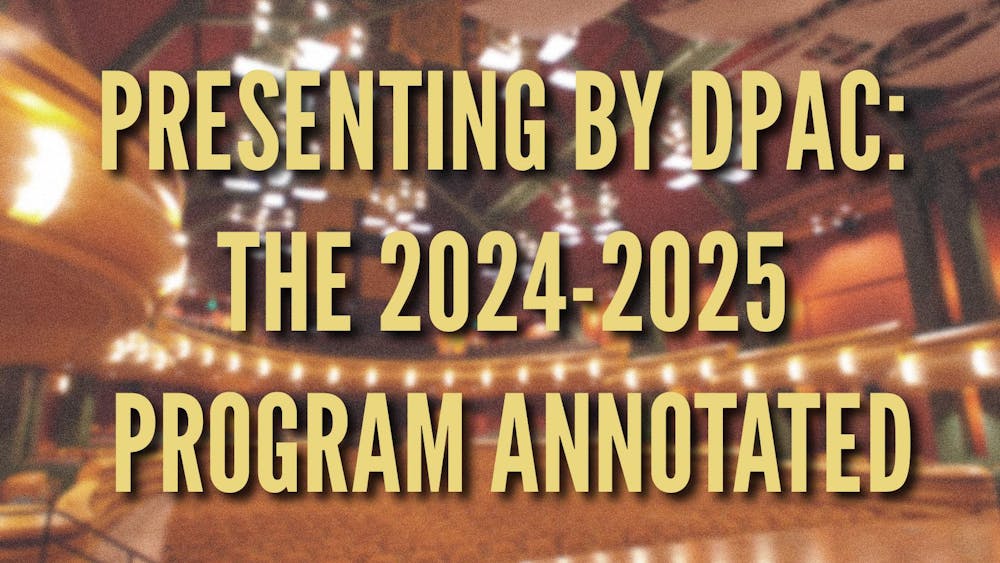
“Measure for Measure,” written around the start of the 17th century, is widely considered to be one of William Shakespeare’s “problem plays.” Characterized by erratic shifts of tone between comedy and evocative psychological drama, Shakespeare’s problem plays are shrouded in ambiguity — making them some of his hardest to execute. For Actors From The London Stage, who performed “Measure for Measure” in Washington Hall from Wednesday through Friday, the play proved a worthy challenge, but was met with exceptional skill and aplomb.
Actors from The London Stage (AFTLS), an educational program founded in 1975 at the University of California, Santa Barbara and now based in London and the University of Notre Dame, is comprised of five rotating actors from a handful of esteemed theatre companies. Each AFTLS production is fashioned without a director, forcing the actors to collaborate in interpreting Shakespeare’s poetic vision. This method may seem unconventional, but the cast’s talent as both actors and directors is extremely evident, even when performing a play as complicated as “Measure for Measure.”
The story of “Measure for Measure” begins with the Duke of Vienna unexpectedly appointing his straitlaced deputy Angelo as temporary leader of his rampantly sinful city. Soon, Angelo arrests Claudio on charges stemming from consensual premarital sex, leaving Claudio’s sister Isabella, a pious nun, to plea for her brother’s life. From here, the story builds in every direction and concludes with the Duke returning to tie things up in a neat, albeit confounding, manner.
Rule of law is at the heart of “Measure for Measure,” raising questions such as how mercy and forgiveness should permeate into institutionalized judgement. The play provides a number of stark characters, each providing a particular stance on the matters raised in the play. In light of the many issues surrounding the U.S.’s current penal and prison system, such as mass incarceration, racial discrimination and high recidivism rates to name a few, the performance’s emphasis on the rule of law took on an especially poignant significance.
The decision to utilize only five actors for the 15+ character–play proved a challenge for the production as each actor played at least three distinct roles. Yet, the actors’ attempts to make up for their small cast — from using simple hats suspended in the air by hand to represent absent characters, to pausing the show so actors could have conversations with themselves — proved an intriguing and funny component of the overall production. Actor Peter Bray, who played Lucio, Elbow and Mariana, was the other major source of comedy in the play, thanks in big part to his stellar timing.
In addition to the small cast, AFTLS are further hindered by a lack of a set and an abundance of props. However, these limitations were also appropriately handled. To denote scene changes, for example, the cast would often sing in unison, adding a creative and fun element to the production. From start to finish, these creative decisions help make the production an entertaining take on one of Shakespeare’s most interesting plays.













